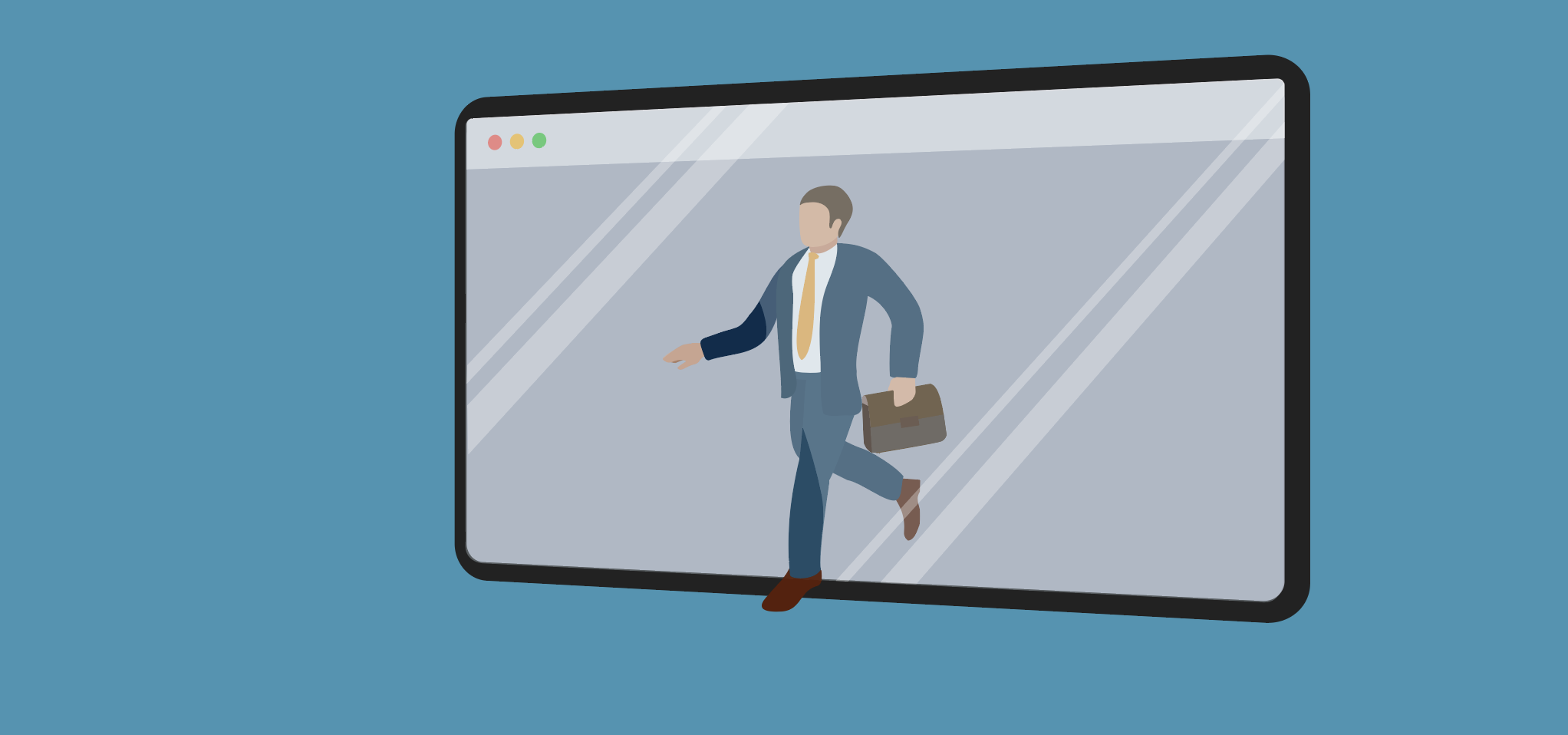Not too long ago, the practice of law was incredibly low-tech. To write a legal brief, your day went something like this:
- You researched in an actual library and then Shepardized your cases using actual books.
- You walked back to your office where you either spoke into a dictation machine or hand-wrote your brief.
- When you finished, you handed a cassette tape or a pile of yellow legal-pad scribblings over to the “Word Processing Department,” who would type a beautiful, well-formatted brief for you by morning.
- A human courier would drive your brief down to the courthouse for filing.
- Meanwhile, paper copies of your work were put in a file that lived in a huge room filled with thousands of other files.
Contrast that with today where legal professionals perform every part of that process on a computer, in a cloud, and using artificial intelligence.
We spend a huge portion of our day in front of screens. Think about all the ways you use technology on a daily basis:
- Client meetings are held virtually.
- Relaxation comes from streaming movies.
- Socializing happens via social media, dating apps, or FaceTime.
- We go to therapy and doctor’s appointments online.
- Many cars have screens for the driver and backseat passengers.
Heck, most of our exercise machines, gas pumps, and even refrigerators have screens. Sleep may be our only respite.
While modern life is undoubtedly more convenient and efficient, it may not be great for us to be exposed to that much screen stimulation all the time. Let’s talk about tech fatigue, shall we? Perhaps more importantly, let’s also talk about tech detoxing.
What is tech fatigue?
The simplest definition for tech fatigue is the mental and physical exhaustion that comes from staring at screens all day.
It goes further than that though. Physical symptoms can include eye strain, headaches, neck and shoulder pain, blurred vision, weight gain, and high blood pressure. Emotional symptoms include mood swings, depression, and anxiety.
While we’re talking about anxiety, let’s not forget “FOMO” (aka fear of missing out), which is an actual condition resulting from our addiction to technology.
Think about it for a second. We receive information digitally all day long – from colleagues, clients, family, friends, news sources, social media, etc. When we turn away from screens, many people start to have anxiety about missing one or more of these messages.
This definitely sounds horrible (and horribly familiar). So, what do we do about it?
Tech detoxing
At its core, tech fatigue is a form of substance abuse – we are literally over-using technology to the point that it’s making us sick.
As with other forms of substance abuse, one of the best treatments is a good, old-fashioned detox. Let’s explore how a tech detox can improve your life and, more critically, how we can achieve a tech detox when our professional lives rely on technology so heavily.
Benefits of a tech detox
Remember all those physical and emotional symptoms we talked about above? Obviously, reducing your tech time is going to help alleviate those symptoms.
But wait, there’s more!
A digital detox has several other benefits, such as:
- Making us feel better about ourselves
- Helping us sleep better
- Calming us down
- Boosting our productivity
I don’t know a single legal professional that wouldn’t benefit from those things. So, how do we get there?
The nuts and bolts of tech detox
As with any other form of detoxification, tech detox means reducing your exposure to the thing that’s hurting you.
In other words, you need to shut your screens off.
That can be relatively easy when it comes to recreational screen time. Watch less TV, reduce your social media exposure, spend more time outdoors.
More complicated is the issue of reducing the screen time required by your profession. We don’t need to tell you the 4 million reasons why you feel like you can’t be out of touch with your colleagues, clients, employers, and opposing counsel.
What we can do, however, is show you how detox is possible for legal professionals.
How to do a tech detox as a busy legal professional
Like any detox, this one’s going to come with some harsh truths. Yet, as with any other detox, they’re good for you.
Here’s your detox tool kit:
#1: Understand that you’re not the only lawyer on the planet
Legal professionals have developed all sorts of strategies for taking vacations without their practices falling apart. We’re guessing you could deploy some of those tips for giving yourself a vacation from technology.
One of the hardest things about a tech detox is feeling like you’re abandoning your friends, neglecting your career, and generally being selfish. That’s the addiction talking.
In reality, the world is not going to fall apart because you turned off your phone and took a break from email.
Your firm will be fine.
Your clients will be fine.
You will be fine.
#2: Set appropriate boundaries
You don’t have to be plugged in all the time, you know?
Change your notification settings so you don’t receive constant pings about emails, texts, news items, and everything else. The “Do Not Disturb” feature of most cell phones is particularly useful for this.
Set specific times that you will check for those messages. It might feel like you need to be constantly available, but for most professionals, checking in twice a day is sufficient.
During your detox, you may also need a little help stepping away from screen-based entertainment. Check out the parental control features on your devices — often, there’s an option to block access during specific hours.
#3: Have a strategy for emergencies
If you’re worried about a wholesale detox, you can create a failsafe strategy for true emergencies.
For example, you can give a select few colleagues and family members the number to a burner phone they know is only for emergencies. That way, the only notification in the world that you need to think about is the ring of that highly specialized phone.
You can also have a specific email address you check at predetermined times, a communication app like WhatsApp that is only for emergency use, or even a landline phone. If you’re staying at a hotel or resort for your detox, the front desk can contact your room phone in an emergency.
Make sure you’re very clear about what counts as an emergency.
Work-related issues should go to someone else at your firm. Designate someone to make decisions on your behalf while you’re unreachable.
Get your family involved to help here. Your spouse or another close family member might even be able to take temporary custody of your cell phone to screen calls and make sure that any truly urgent issues get handled right away.
#4: Be serious
If you have been experiencing the details of tech fatigue, you need to take detox seriously. That means setting goals for yourself, sharing those goals with others, sticking to your boundaries, and charting your progress.
Like kicking any addiction, this detox will probably be hard. Be ready to work at it.
If you need to, set consequences for failure. For example, write a check to a charity or political cause you hate and give it to a family member or close friend. Install a monitoring app on your phone that tracks your screen time and app usage. At the end of your detox, let your loved one check the logs. If you fail at your detox, they’ll mail the check.
Alternatively, you can take your detox more seriously by getting away from your usual triggers. Book a short getaway in a cabin, go camping, or simply go visit family for a weekend. Make sure you have plenty of non-tech activities like books or board games.
Make sure your loved ones (and your firm) know that you’re taking a break from screens so that they can respect your space and help you succeed.
#5: Communicate effectively
Tell your clients and colleagues what they can realistically expect from you as far as digital availability on a day-to-day basis. It’s okay to be totally unavailable for a few days as long as you specify a backup plan for the people who need you.
If you’re planning on taking a prolonged break, consider sending opposing counsel a “notice of unavailability.” While they may not honor it, it might give you leverage with the judge should they exploit it.
Use your Out Of Office messages on email, Slack, voicemail, and any other communication platforms. Let people know when you’ll be back and how they should get help in the meantime.
Final thoughts
It’s amazing how scary it can be to detox from things that we feel like we depend on. A few days away from all of those instant communication channels can look like extreme isolation.
Yet the evidence seems clear that overuse of screen time is impacting our health.
Too often, we spend our energy and focus on “connecting” with the digital world at the expense of the things we love that are right in front of us. Why not give these tips a try and see if your life (and career) doesn’t improve because of it?
Author

Jennifer Anderson is the founder of Attorney To Author, where she helps legal professionals bring their book projects to life. She was a California attorney for nearly two decades before becoming a freelance writer, marketing/branding consultant, ghostwriter, and writing coach. Her upcoming book, Breaking Out of Writer's Block, Exercises and inspirations for getting the words out of your head and onto the page, is due out in September 2023.
View all posts





